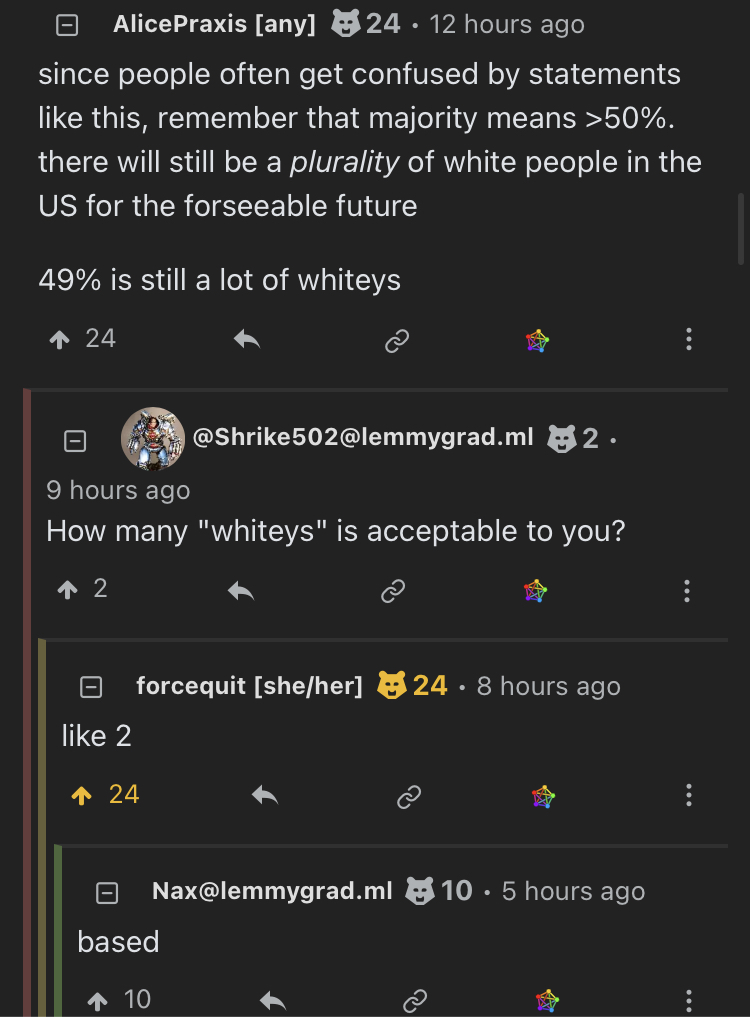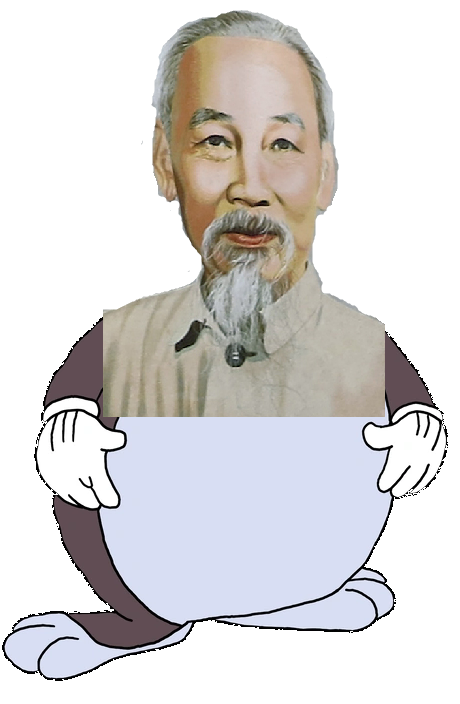The Great Pueblo Revolt, or Pueblo Revolt (1680–1696), was a 16-year period in the history of the American southwest when the Pueblo people overthrew the Spanish conquistadors and began to rebuild their communities. The events of that period have been viewed over the years as a failed attempt to permanently expel Europeans from the pueblos, a temporary setback to Spanish colonization, a glorious moment of independence for the Pueblo people of the American southwest, or part of a larger movement to purge the Pueblo world of foreign influence and return to traditional ways of life. It was no doubt a bit of all four.
The Spanish first entered the northern Rio Grande region in 1539 and its control was cemented in place by the 1599 siege of Acoma pueblo by Don Vicente de Zaldivar and a few score of soldier colonists from the expedition of Don Juan de Oñate. At Acoma's Sky City, Oñate's forces killed 800 people and captured 500 women and children and 80 men. After a "trial," everyone over the age of 12 was enslaved; all men over 25 had a foot amputated. Roughly 80 years later, a combination of religious persecution and economic oppression led to a violent uprising in Santa Fe and other communities of what is today northern New Mexico. It was one of the few successful—if temporary—forceful stoppages of the Spanish colonial juggernaut in the New World.
Life Under the Spanish
As they had done in other parts of the Americas, the Spanish installed a combination of military and ecclesiastical leadership in New Mexico. The Spanish established missions of Franciscan friars in several pueblos to specifically break up the Indigenous religious and secular communities, stamp out religious practices and replace them with Christianity. Active efforts to convert the Pueblo people to Christianity involved destroying kivas and other structures, burning ceremonial paraphernalia in public plazas, and using accusations of witchcraft to imprison and execute traditional ceremonial leaders.
The government also established an encomienda system, allowing up to 35 leading Spanish colonists to collect tribute from the households of a particular pueblo. Hopi oral histories report that the reality of the Spanish rule included forced labor, the seduction of Hopi women, raiding of kivas and sacred ceremonies, harsh punishment for failing to attend mass, and several rounds of drought and famine.
Growing Unrest
While the Pueblo Revolt of 1680 was the event that (temporarily) removed the Spanish from the southwest, it was not the first attempt. The Pueblo people had offered resistance throughout the 80-year period following the conquest. Public conversions didn't (always) lead to people giving up their traditions but rather drove the ceremonies underground. The Jemez (1623), Zuni (1639) and Taos (1639) communities each separately (and unsuccessfully) revolted. There also were multi-village revolts that took place in the 1650s and 1660s, but in each case, the planned revolts were discovered and the leaders executed.
The Pueblos were independent societies before Spanish rule, and fiercely so. What led to the successful revolt was the ability to overcome that independence and coalesce. Some scholars think it was a millenarian movement, and have pointed to a population collapse in the 1670s resulting from a devastating epidemic that killed off an estimated 80% of the Indigenous population, and it became clear that the Spanish were unable to explain or prevent epidemic diseases or calamitous droughts. In some respects, the battle was one of whose god was on whose side: both Pueblo and Spanish sides identified the mythical character of certain events, and both sides believed the events involved supernatural intervention.
Nonetheless, the suppression of Indigenous practices became particularly intense between 1660 and 1680, and one of the main reasons for the successful revolt appears to have occurred in 1675 when then-governor Juan Francisco de Trevino arrested 47 "sorcerers," one of whom was Po'pay of San Juan Pueblo.
Leadership
Po'Pay (or Popé) was a Tewa religious leader, and he was to become a key leader and perhaps primary organizer of the rebellion. Po'Pay may have been key, but there were plenty of other leaders in the rebellion. Domingo Naranjo, a man of African and Indigeneous heritage, is often cited, and so are El Saca and El Chato of Taos, El Taque of San Juan, Francisco Tanjete of San Ildefonso, and Alonzo Catiti of Santo Domingo.
Under the rule of colonial New Mexico, the Spanish deployed ethnic categories ascribing "Pueblo" to lump linguistically and culturally diverse people into a single group, establishing dual and asymmetric social and economic relationships between the Spanish and Pueblo people. Po'pay and the other leaders appropriated this to mobilize the disparate and decimated villages against their colonizers.
August 10–19, 1680
After eight decades of living under foreign rule, Pueblo leaders fashioned a military alliance that transcended longstanding rivalries. For nine days, together they besieged the capital of Santa Fe and other pueblos. In this initial battle, over 400 Spanish military personnel and colonists and 21 Franciscan missionaries lost their lives: the number of Pueblo people who died is unknown. Governor Antonio de Otermin and his remaining colonists retreated in ignominy to El Paso del Norte (what is today Cuidad Juarez in Mexico).
Witnesses said that during the revolt and afterward, Po'Pay toured the pueblos, preaching a message of nativism and revivalism. He ordered the Pueblo people to break up and burn the images of Christ, the Virgin Mary, and other saints, to burn the temples, smash the bells, and separate from the wives the Christian church had given them.
Revitalization and Reconstruction
Between 1680 and 1692, despite the efforts of the Spanish to recapture the region, the Pueblo people rebuilt their kivas, revived their ceremonies and reconsecrated their shrines. People left their mission pueblos at Cochiti, Santo Domingo and Jemez and built new villages, such as Patokwa (established in 1860 and made up of Jemez, Apache/Navajos and Santo Domingo pueblo people), Kotyiti (1681, Cochiti, San Felipe and San Marcos pueblos), Boletsakwa (1680–1683, Jemez and Santo Domingo), Cerro Colorado (1689, Zia, Santa Ana, Santo Domingo) There were many others.
The architecture and settlement planning at these new villages was a new compact, dual-plaza form, a departure from the scattered layouts of mission villages. Liebmann and Pruecel have argued that this new format is what the builders considered a "traditional" village, based on clan moieties. Some potters worked on reviving traditional motifs on their glaze-ware ceramics, such as the doubled-headed key motif, which originated fro, 1400–1450.
New social identities were created, blurring the traditional linguistic-ethnic boundaries that defined Pueblo villages during the first eight decades of colonization. Inter-Pueblo trade and other ties between Pueblo people were established, such as new trade relationships between Jemez and Tewa people which became stronger during the revolt era than they had been in the 300 years before 1680.
Reconquest Attempts by the Spanish to reconquer the Rio Grande region began as early as 1681 when the former governor Otermin attempted to take back Santa Fe. Others included Pedro Romeros de Posada in 1688 and Domingo Jironza Petris de Cruzate in 1689—Cruzate's reconquest was particularly bloody, his group destroyed Zia pueblo, killing hundreds of residents. But the uneasy coalition of independent pueblos wasn't perfect: without a common enemy, the confederation broke into two factions: the Keres, Jemez, Taos and Pecos against the Tewa, Tanos, and Picuris.
The Spanish capitalized on the discord to make several reconquest attempts, and in August of 1692, the new governor of New Mexico Diego de Vargas, initiated his own reconquest, and this time was able to reach Santa Fe and on August 14 proclaimed the "Bloodless Reconquest of New Mexico." A second abortive revolt occurred in 1696, but after it failed, the Spanish remained in power until 1821 when Mexico declared independence from Spain.
Ysleta del Sur Pueblo
The Tribal community known as "Tigua" established Ysleta del Sur in 1682. After leaving the homelands of Quarai Pueblo due to drought, the Tigua sought refuge at Isleta Pueblo and were later captured by the Spanish during the 1680 Pueblo Revolt and forced to walk south for over 400 miles. The Tigua settled and built the Ysleta del Sur Pueblo and, soon after, the acequia (canal) system that sustained a thriving agricultural-based community.
A BRIEF HISTORY OF THE PUEBLO REVOLT
Megathreads and spaces to hang out:
- ❤️ Come listen to music and Watch movies with your fellow Hexbears nerd, in Cy.tube
- 💖 Come talk in the New Weekly Queer thread
- 💛 Read and talk about a current topics in the News Megathread
- ⭐️ August Movie Nominations ⭐️
reminders:
- 💚 You nerds can join specific comms to see posts about all sorts of topics
- 💙 Hexbear’s algorithm prioritizes comments over upbears
- 💜 Sorting by new you nerd
- 🌈 If you ever want to make your own megathread, you can reserve a spot here nerd
- 🐶 Join the unofficial Hexbear-adjacent Mastodon instance toots.matapacos.dog
Links To Resources (Aid and Theory):
Aid:
Theory:
Hi everyone. I used to be on this site about a year ago. I deleted my old account because the name could be linked back to me personally. And then I was just off social media for a while.
But now I'm back and reporting for shitposting duty

New Megathread Nerds!!!

-
🐶 Join the unofficial Hexbear-adjacent Mastodon instance toots.matapacos.dog
-
🌈 If you ever want to make your own megathread, you can go here nerd
@aaaaaaadjsf@hexbear.net @Abraxiel@hexbear.net @Abstraction@hexbear.net @Acute_Engles@hexbear.net @AnarchaPrincess@hexbear.net @Alaskaball@hexbear.net @AlicePraxis@hexbear.net @Aliveelectricwire@hexbear.net @artificialset@hexbear.net @autismdragon@hexbear.net @Awoo@hexbear.net @bbnh69420@hexbear.net @BirdBrained@hexbear.net @buh@hexbear.net @CDommunist@hexbear.net @Cherufe@hexbear.net @ClimateChangeAnxiety@hexbear.net @clover@hexbear.net @ComradeCmdrPiggy@hexbear.net @ComradeEchidna@hexbear.net @context@hexbear.net @corgiwithalaptop@hexbear.net @CrispyFern@hexbear.net @CriticalOtaku@hexbear.net @Cromalin@hexbear.net @CyborgMarx@hexbear.net @Dirt_Owl@hexbear.net @Dolores@hexbear.net @drinkinglakewater@hexbear.net @Dryad@hexbear.net @ElChapoDeChapo@hexbear.net @ElGosso@hexbear.net @el_principito@hexbear.net @EmmaGoldman@hexbear.net @FALGSConaut@hexbear.net @Flinch@hexbear.net @forcequit@hexbear.net @Frank@hexbear.net @Frogmanfromlake@hexbear.net @FuckyWucky@hexbear.net @GalaxyBrain@hexbear.net @GaveUp@hexbear.net @Goadstool@hexbear.net @GorbinOutOverHere@hexbear.net @Grownbravy@hexbear.net @GVAGUY3@hexbear.net @HarryLime@hexbear.net @hexaflexagonbear@hexbear.net @Ho_Chi_Chungus@hexbear.net @Hooray4dolphins@hexbear.net @InevitableSwing@hexbear.net @iridaniotter@hexbear.net @jabrd@hexbear.net @JamesConeZone@hexbear.net @Kaputnik@hexbear.net @kristina@hexbear.net @LesbianLiberty@hexbear.net @MaxOS@hexbear.net @Melina@hexbear.net @Mindfury@hexbear.net @mkultrawide@hexbear.net @Nagarjuna@hexbear.net @Nakoichi@hexbear.net @PaulSmackage@hexbear.net @plinky@hexbear.net @Pluto@hexbear.net @PorkrollPosadist@hexbear.net @President_Obama@hexbear.net @Ram_The_Manparts@hexbear.net @Redcuban1959@hexbear.net @RION@hexbear.net @RNAi@hexbear.net @Rojo27@hexbear.net @SeventyTwoTrillion@hexbear.net @solaranus@hexbear.net @SorosFootSoldier@hexbear.net @Sickos@hexbear.net @silent_water@hexbear.net @Sphere@hexbear.net @spring_rabbit@hexbear.net @SunsetFruitbat@hexbear.net @take_five_seconds@hexbear.net @Teekeeus@hexbear.net @Tervell@hexbear.net @UlyssesT@hexbear.net @VHS@hexbear.net @viva_la_juche@hexbear.net @WhatDoYouMeanPodcast@hexbear.net @Wheaties@hexbear.net @WhyEssEff@hexbear.net @WIIHAPPYFEW@hexbear.net @wtypstanaccount04@hexbear.net @wombat@hexbear.net @Zoift@hexbear.net @Zuzak@hexbear.net
@thelastaxolotl@hexbear.net @WhoaSlowDownMaurice@hexbear.net @Quimby@hexbear.net
@CARCOSA@hexbear.net @liberal@hexbear.net @ella@hexbear.net @all_or_nothing@hexbear.net @KenBonesWildRide@hexbear.net @KiraNerys@hexbear.net @TomboyShulk@hexbear.net @DuckNuckem@hexbear.net @SapGreen@hexbear.net @Zangief@hexbear.net @scumlord@hexbear.net @COMMENT@hexbear.net @Antisocial_Socialist@hexbear.net @DOPESMOKERDENG@hexbear.net @BoarAvoir@hexbear.net
Remember nerds just like in the old site, no current struggle session discussion here on the new general megathread, i will ban you from the comm and remove your comment, have a good day/night :meow-coffee:
-
managed to get the deposit down on an apartment with some friends

the rent is kind of bullshit and the landlord company is making us fill out a a bunch of awkward forms on on a really shittily designed website, but we managed it. theres meant to be a big lgbt community there and leftist organisations and people my own age. the only issue now is getting a job. its not usually in my nature, but i'm actually feeling pretty hopeful about life rn

Well I don't watch porn and am asexual, so good guess, but if others wanna do those things I have no issue with that
 today I will wander into hexbear to combat genocide denial
today I will wander into hexbear to combat genocide deniallol there are guys on
 suspecting hexbear of running DDOS attacks on Lemmy.
suspecting hexbear of running DDOS attacks on Lemmy.First, I am so full of rage right now. Just absolute seething fucking anger that you could run a geothermal plant off of.
Did you know most people don't think leaders are personally responsible for the misdeeds of their underlings? I've never understood that. Taking on a leadership position means, first and foremost, that everyone under you is your responsibility. They don't fuck up - You fucked up by not giving them the training, tools, mentorship, or leadership that they needed to accomplish their objectives. That's it. That's how leadership works. It's all your responsibility, and when it goes wrong it's all your fault.
And there's also no such thing as an accident. When the airline loses your luggage? That's not a fucking accident. Some very well paid people did a cost benefit analyses and agreed on the acceptable amount of luggage that could be lost without hurting profits. Your luggage wasn't lost. The airline decided they could ignore it, that it was acceptable to do so, that it was not in their (the shareholders) interest to give a shit. Someone made a decision not to make the luggage handling system better, more reliable, more consistent, easier on the employees. Someone made a decision not to hire more luggage handlers, have more on hand, have shorter shifts so they weren't tired, give them more time off and pay and benefits so they'd be fresh and healthy and motivated to do their jobs. Decisions were made by rich men in suits who hold you in contempt and you are suffering for those decisions.
And you have the right to extract justice from them at the point of a sword.
Thank you for coming to my lecture.
People don't control other people. They do collectively produce outcomes though. The point is that all involved share responsibility and that the idea of leadership is a tool for some to oppress others, not a reflection of reality, responsibility, etc. So everyone shares the blame, capitalists a lot lot lot more, though.
Your absolutely right about lost baggage being a choice.
I'm really warming up to the federation, a lot of people from lemmy.ml seem cool and like someone said a few days ago watching libs wander in and get complete culture shock is indeed extremely funny
The recent Taiwan thread is premium slop

Got high and forgot I ordered a Mac and Cheese because it took an hour to get delivered
Easily one of the best surprises I've gotten recently
The origin of the word dildo is completely unknown and lost to history
Show
Italians provided the word diletto, meaning "to delight," from which the modern English word "dildo" evolved
 https://goaskalice.columbia.edu/answered-questions/history-dildos/
https://goaskalice.columbia.edu/answered-questions/history-dildos/But also
The "etymological" meaning of the English F -word is "move back and forth," and dil seems to have meant the same. Dalliance and dilly-dally come from French, but the original home of dally is Germanic (archaic German dahlen means "dilly-dally"). In words of this type, vowels vary freely (thus the German for fuck is ficken ).
https://blog.oup.com/2007/02/dildo_back_and_/
And
[Europe, 16th-18th century] Here, dildos start to be linked with emasculation (giving Sigmund Freud all the material he would need two centuries later). This anxiety is concisely captured in Thomas Nashe’s 16th century poem The Merrie Ballad of Nash, His Dildo. Being overly excited to see his lover on Valentine’s Day, the speaker ejaculates as soon as he lays eyes on her in the brothel. And, because she’s annoyed, dissatisfied and #feministgoals, the woman reaches under her bed and whips out a dildo.
https://umsu.unimelb.edu.au/news/article/7797/2019-08-11-the-history-of-the-dildo/






















